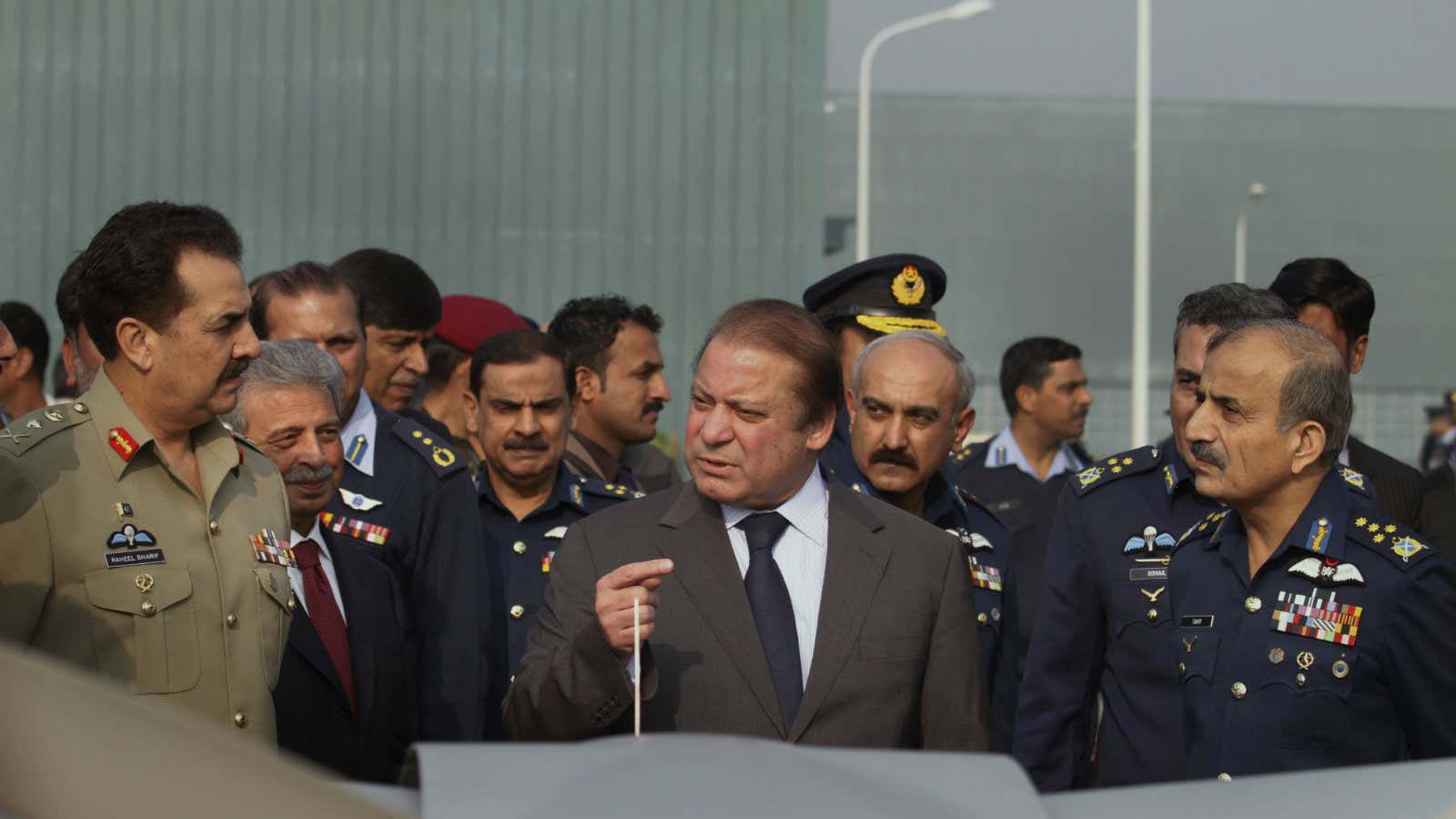Something is brewing in the Pakistani establishment.
An exclusive report in Karachi-based Dawn, Pakistan’s oldest English-language daily, on Oct. 06 indicated an unusual conversation taking place in the upper echelon of the South Asian country’s government on its approach to militancy.
“In a blunt, orchestrated and unprecedented warning, the civilian government has informed the military leadership of a growing international isolation of Pakistan and sought consensus on several key actions by the state,” Cyril Almeida of the Dawn reported.
The source-based report goes on to describe, in considerable detail, the crucial meetings and the decisions taken earlier this week. One such meeting, chaired by prime minister Nawaz Sharif, was apparently attended by senior cabinet and provincial officials and, importantly, Rizwan Akhtar, the director general of Pakistan’s powerful spy agency, the Inter-Services Intelligence (ISI).
The civilian side emphasised the need to rein in militants and non-interference on the military’s part in legal proceedings against the extremists. Sharif himself reportedly sought a quick conclusion to the investigation into the January 2016 terrorist attack on the Indian Air Force base in Pathankot in India’s Punjab state by alleged Pakistan-backed terrorists. He also wanted the trials related to the 2008 terrorist attack on Mumbai to be restarted.
Perhaps the most significant part of the meeting—at least from India’s perspective—was the Pakistan foreign secretary’s understanding of China’s “all-weather” support to his country.
“To a hushed but surprised room, (foreign secretary Aizaz) Chaudhry suggested that while China has reiterated its support for Pakistan, it too has indicated a preference for a change in course… Specifically, while Chinese authorities have conveyed their willingness to keep putting on technical hold a UN ban on Jaish-e-Mohammad leader Masood Azhar, they have questioned the logic of doing so repeatedly,” the report said.
Whether these murmurs indicate a genuine change of heart in the Pakistani establishment is moot. But even a conversation in this direction would be welcomed by the international community, to say the least about India and Afghanistan.
